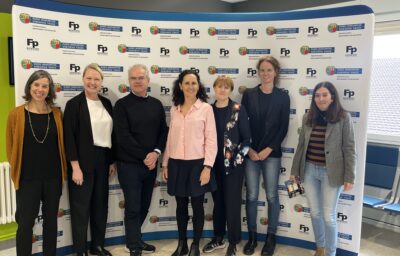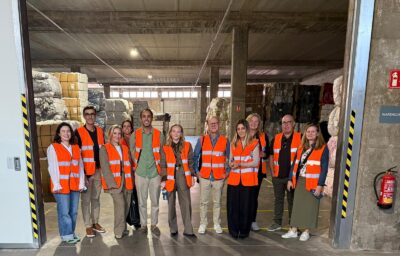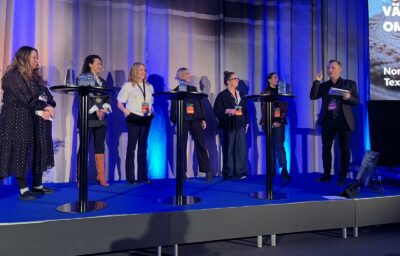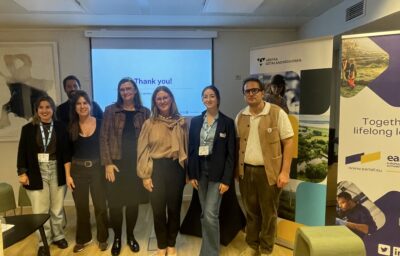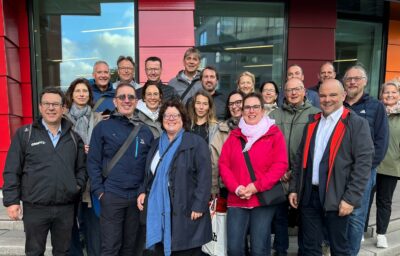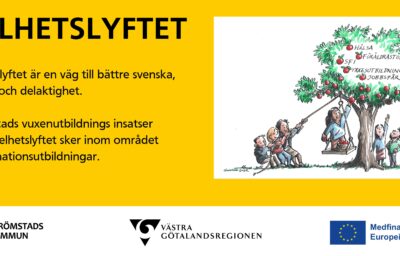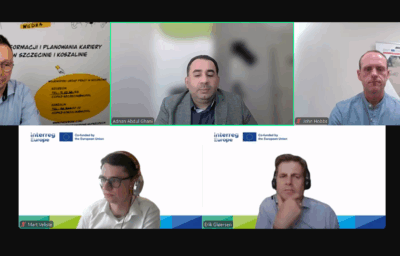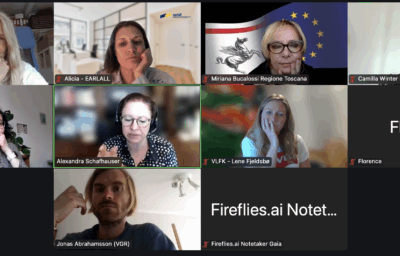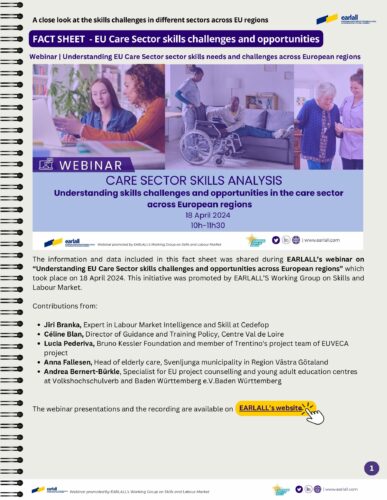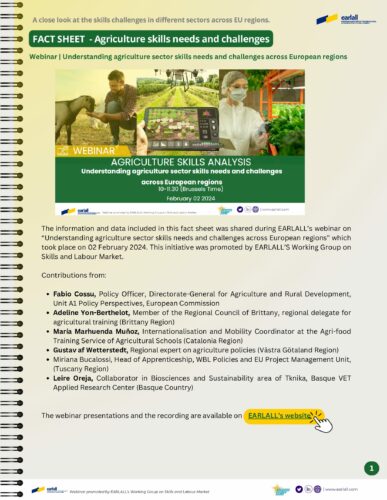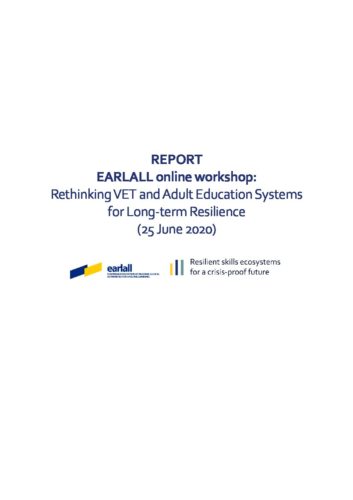Region Västra Götaland (Presidency)
Region Västra Götaland (VGR) is a county council governing the territory Västra Götaland, located in the southwest of Sweden. The Region includes 49 municipalities, divided into four larger local assemblies of regions (i.e. Göteborgsregionen, Fyrbodal, Skaraborg, Sjuhärad). Taken together, the territory has approximately 1.7 million inhabitants, Region Västra Götaland is responsible for regional growth and development matters, along with healthcare and medical treatment, public transportations and supports cultural life throughout the county. Everyone who lives and works in Västra Götaland should have the opportunity to live a good life. The key to the long-term appeal and competitiveness of Västra Götaland is our common ability to be innovative and to make the transition to an economically, socially, and environmentally sustainable society. To reach our goals we work together in collaboration with the municipalities, the four local authority associations, industry representatives, academia and research institutes, science centers, civil society, and other government bodies.
Region Västra Götaland has a strong industrial base and a significant research and development sector. Efforts to promote skills transition and lifelong learning are essential to meet the changing needs of the labour market, technological shifts, and increasing demands for sustainability. The green, industrial and digital transition also requires us to learn, and act based on new knowledge and evolving conditions. As the need for skills changes rapidly, opportunities for skills provision and lifelong learning become increasingly important. Most industries in Västra Götaland are experiencing skills shortages, particularly in relation to the green and digital transition. Demographic developments are also affecting the labour market outlook, and the supply of labour is expected to remain limited for a long time. Therefore, industries cannot rely solely on new recruitment to meet their skills needs; it will also require new working methods, reskilling and increased collaboration between education providers and labour market actors. Enhancing the attractiveness of vocational training (VET) as well as STEM-related education and careers, increasing children’s chances of finishing primary school with passing grades, talent attraction and competency validation are examples of areas that we focus on and try to stimulate to strengthen the labour market matching.
Whilst all the above-mentioned responsibilities remain important to the region’s overall work, these responsibilities towards the labour market are particularly pertinent towards EARLALL’s work. VET and efforts towards lifelong learning are some ways in which this is being realised further. Within the realm of EARLALL’s activities, VGR participates in the “Mobility” working group. Other actors, such as regional universities, educational institutions, labour market organisations, and the Swedish public employment service, remain equally important in facilitating VGR’s work of continued education and lifelong learning.
Structure for strategic skills provision
The four different local assemblies of regions within Region Västra Götaland work together on several joint development activities. Together we have developed a structure for strategic skills provision based on these four sub-regions. In each sub-region, a forum is regularly convened, bringing together business organisations, education providers from upper secondary to higher education, labour market stakeholders and municipal associations. These forums aim to identify skills needs, coordinate efforts, and contribute to better matching in our local labour market regions. The region take part in all four forums and also contributes with analyses and reports, as well as mapping at the regional and sub-regional levels.
If Sweden – as a small country existing relatively far away from the larger markets and therefore reliant on the export industry – is to adequately hold its ground as competition for jobs and industry hardens worldwide, efforts towards increased lifelong learning is likely to be one of the most effective solutions to help people develop the appropriate skills to establish themselves on the labour market. Enhanced coordination efforts between educational institutions to supply enrolled students with the right competency for future work will be pivotal to this end. Over the years, VGR has participated in several EU-funded projects together with partners in Europe (see list below). One example of an ongoing EU-funded project relevant to VGR’s work is:
SALAM: aims to support public authorities in fast-tracking the sustainable inclusion of migrants into local labour markets, harnessing their competences, capacities and ambitions, through developing targeted education, guidance and learning opportunities.
VGR, through its folk high school administration, has received Erasmus+ accreditation to carry out experience exchanges for course participants and staff together with other schools in the EU.
Apart from the network within VGR itself, several other initiatives in the region aim to bring industry, education, and businesses together to create a more cohesive and inclusive labour market. Examples include Industry In West, an EU-funded project supporting companies in the transition to a long-term sustainable industry under new global conditions; Voltage, an Erasmus+ project that seeks to build a skilled workforce capable of driving the future of the battery sector; and Westum, a network that brings educational institutes and industry closer together.
VGR participated in the Smart Factory (‘Smarta Fabriker’) project, where technological institutes collaborated with businesses and industries to provide education and knowledge on industrial digitalisation to both students and professionals
Examples of EU-funded projects relevant to VGR’s work on lifelong learning are BRIDGE+, FIER, TALENTS, and InVäst. These projects are international collaborations done together with a myriad of different actors, including, but not limited to, counties, other Regions, federal governments, companies, and educational institutions.
- BRIDGE+, with co-funding from the EU Erasmus+ programme, has its aim towards skills development by building, testing, and implementing new strategies of labour market integration at a regional level with the help of innovative technology.
- FIER(Fast-Track Integration in European Regions) aims at developing instruments and strategies for a fast-track labour market integration of disadvantaged groups among refugees and asylum-seekers. The project is funded by the EU programme for Employment and Social Innovation (EaSI), and has spanned two years, wrapping up in December 2019.
- The TALENTS project targets immigrants and refugees, aiming to increase their inclusion in society through language and professional training, thereby facilitating faster access to the labour market.
- Additional initiatives to strengthen immigrants’ and refugees’ position on the labour market is done through the InVäst project, funded by the European Social Fund (ESF), with a focus on language training, competency validation, and network-building. VGR’s own initiative – Future Kitchen – similarly emphasises language training and vocational training as important factors for successful labour market integration.



